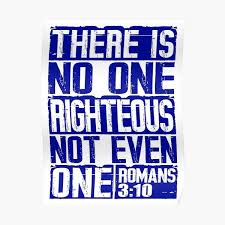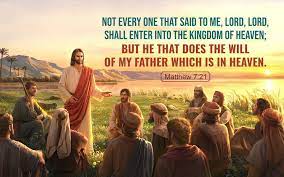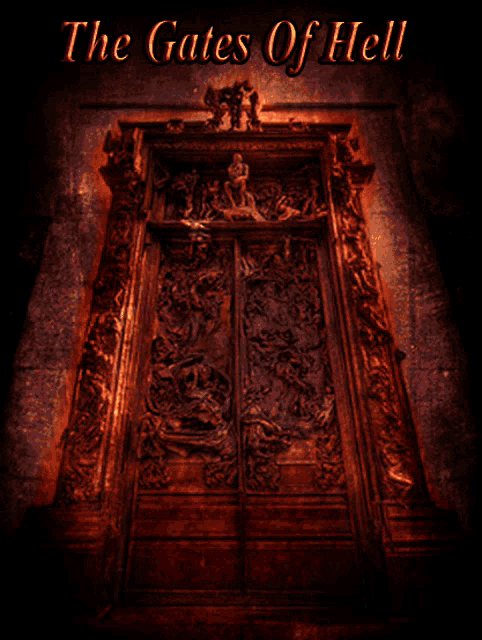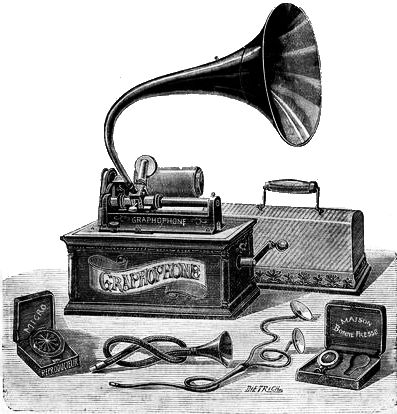In the last book of the Bible we are given amazing pictures of the final destination and eternal home for all who know Jesus Christ. The place is known as New Jerusalem, the heavenly city.
The term “City of God” is juxtaposed with “The City of man,” in the Bible and constitutes an important topic for one’s homework assignment.
Although New Jerusalem is a “gated community” (12 gates) residents of the city come and go evidently, visiting the rest of the universe on assignment or on “vacation.”
But let’s focus for a bit on “outside the city.” There, outside the walled city an exclusion zone is to be found. This “place” is reserved for outcasts, for those who have refused God’s mercy, grace and love.
God loves everyone who has ever lived. But few respond to His call to become a family member. The grand total number of people who have ever lived, could well total 100 billion people. (World Population). “Whosoever will may come” is an amazing offer. Jesus was very clear about who goes to heaven and who is excluded. Down through history perhaps only a few percent have allowed Jesus to bring them into His family.
The following list of the Excluded does not include any true followers of Jesus Christ. It can include hypocrites. This list is about persons who have been “unwilling to be persuaded” to come to Jesus for forgiveness, change, recovery. They have refused God’s mercy and grace for a lifetime, until the point of no return. The body may die or be killed, but the spirit and soul cannot die.
Make sure you are not on this list.
And He, (Jesus) said to me (John), “It is done! I am the Alpha and the Omega, the Beginning and the End. I will give of the fountain of the water of life freely to him who thirsts. He who overcomes shall inherit all things, and I will be his God and he shall be My son.
But the cowardly, (deilos, fearful, faithless, those unwilling to trust. Fear is a big deal to God).
the unbelieving, (apostolos, persons who are without faith, die hard skeptics, hardcore rationalists)
the abominable, (Elyssa, detestable, loathsome persons). We might say ugly, twisted people.
murderers, (phones: serial killers, mass murderers, ordinary murderers who are unwilling to be forgiven)
the sexually immoral, (pornos, porn dealers, fornicators, lewd and obscene persons, homosexuals whether active or passive, adulterers, pimps, prostitutes)
sorcerers, (pharmakon: drug dealers, illicit users, pushers, magic, charms and potion dealers)
idolaters, (idolatresses: teachers and students of false religion)
and all liars (pseudos: Intentional deliberate liars, deceivers. Promoters of falsehood)
…shall have their part in the lake which burns with fire and brimstone, which is the second death.” (Revelation 21:6-8)
It should be obvious that a holy God must ultimately exclude all evil from His presence and from his people. Grace and mercy have brought many millions into new life with Jesus inside the City. But outside of time and space, and separated out of God’s great City of Refuge, eternity completely apart from God will be all too real.
New Jerusalem is reserved for former sinners, now washed in the blood of the Lamb.
The categories here refer to settled life styles, not to episodes in the lives of persons who mess up, then flee to Jesus in contrition. If you are reading these words and you haven’t “died” yet (physically), you are fully eligible to live forever as a citizen of New Jerusalem--together with some other remarkable people. The fees and deposits and rents were all paid for in advance by Jesus.
The usual English translations of the Koine Greek do not often make clear what is meant for us modern readers. BlueLetterBible.org has great helps for digging deeper. Adikos, for example, means "without righteousness," --the human condition apart from trust in Jesus. Pornos is a broad word covering all forms of sexual behavior outside of God's designed intentions--which of course includes pornography. Eidolo is, as expected, one's devotion to any other gods other than Yahweh. Moichos is adulterer--living in violation of a marriage covenant. Arsenokoites combines the word "man" with the word "bed" and often refers to the dominant partner in sodomy (commonly called "the top"). Malakos, ("soft"), commonly refers to the passive partner, "the bottom," in male sodomy. Pleonnektes refers to any craving or desire for more of something, greediness, including envy of one's neighbor--is idolatry according to Colossians 3:5. Harpax is used to describe extortioners as "rapacious wolves" for example. The verb tense in verse 11, "were" indicates the persons referred to are actually now new persons in Jesus. The usual stages of growth "justified, sanctified, glorified" are juxtaposed here. We have "washed, sanctified, justified" instead. Sanctified means to make holy. This passage is entirely good news to all those who have placed their trust in Jesus Christ as Lord.
It is hard for us to remember that these words were uttered by a Man standing in the gathering dusk on the Mount of Olives, in the midst of a tiny band of forsaken men, and looking out over a city where even at that moment his enemies were completing the plans for his arrest and execution. When Jesus uttered these words, by every human appearance he was defeated. The powers of darkness were triumphant, the shadow of the cross was falling across his path way, the crowds that once had followed him had long since gone, his friends were fearful and powerless, and one of them was even then set to betray him. Yet as he surveyed the centuries he saw the light that was yet to come, and without uncertainty in his words, in that hour of triumphant evil and seeming human defeat, he declared, "When the Son of man comes in his glory...he will sit on his glorious throne. [And] before him will be gathered the nations."
A Time for Judgment
The mention of nations has proved confusing to some. They have thought of this as a judging of individuals on the basis of their national affiliation; i.e., each will be held accountable for the way his government behaved as a nation. But such is not the case. Those who appear before this judgment seat do not come as Englishmen or Americans or Chinese or Afghans. The Greek word translated "nations" is literally the word "Gentiles." This is, then, the judgment of the Gentiles, the non-Jewish peoples of earth. They are persons living on earth at the time of Christ's manifestation of his presence in power and great glory.
The purpose of the judgment is obviously to determine who shall enter the kingdom of God which the Son has come to establish. Through all the great discourses of Jesus in the gospels the evident passion of his heart is to see the will of God done on earth as it is in heaven. He will manifest himself in power for the very purpose of fulfilling those ancient dreams of the prophets-an earth that will be filled with the righteousness of God as the waters cover the sea. But only the righteous will be allowed to enter.
It is important to note, too, that it is a judgment of sheep and goats, not one of sheep and wolves! Jesus is not choosing between the obviously bad and the obviously good. There is no division here between the opponents of the gospel and the believers in it. That separation is to be made in the very hour of the appearing of Jesus in power and glory. As Paul tells us in 2 Thessalonians 1:9:"When the Lord Jesus is revealed from heaven with his mighty angels in flaming fire, inflicting vengeance upon those who do not know God and upon those who do not obey the gospel of our Lord Jesus. They shall suffer the punishment of eternal destruction and exclusion from the presence of the Lord and from the glory of his might." But in the judgment of the sheep and the goats Jesus is distinguishing sharply among persons all of whom profess to be Christians and claim to belong to him as members of the family of God. It is the separation of the hypocrites from the real; of the false from the true.
Some commentators have felt there are three groups in this judgment scene: the sheep, the goats, and another group whom Jesus terms "my brethren" who are the point of testing at the judgment. These "brethren" would likely be the 144,000 Jewish believers who are closely identified with the Lord during the whole period of his presence behind the scenes. The Lord Jesus says to both the sheep and the goats, "'...as you did it [or did it not] to one of the least of these my brethren, you did it [or did it not] to me.'" It seems highly likely that there is this third group involved. Certainly, during the Tribulation each of these 144,000 will be, as Jesus himself was in the days of his flesh, "despised and rejected of men." It will be a severe test of true love to show kindness toward them for they will be an object of furious hatred by the Lawless One and the authorities of earth in that day.
On the other hand, others feel that by "my brethren" the Lord is simply indicating any individual among the sheep or goats who is in need in the last days and to whom loving help is either extended or withheld. Whichever view is held, it is evident that the principles of our Lord's judgment then are not different from the principles by which he judges men throughout the centuries. God acts, "as it was in the beginning, is now, and ever shall be, world without end, Amen." He will distinguish the hypocrites from among us today exactly on the same basis as he distinguished them then.
Let us now return to the scene our Lord describes, when he will do what no other figure in human history is capable of: dissolve all national distinctions, unite all the nations as one, and sit as the unchallenged Judge over all men:
"Then the King will say to those at his right hand, 'Come, O blessed of my Father, inherit the kingdom prepared for you from the foundation of the world; for I was hungry and you gave me food, I was thirsty and you gave me drink, I was a stranger and you welcomed me, I was naked and you clothed me, I was sick and you visited me, I was in prison and you came to me.'"
The Real Test
The arresting thing about this is that Jesus is clearly saying that the ultimate mark of an authentic Christian is not his creed, or his faith, or his Bible knowledge, but the concern which he shows to those who are in need. The practical demonstration of love is the final proof. And note also that Jesus does not ask anyone to present his case or argue his cause. He asks no questions nor requests any evidence. He simply extends to this one group the invitation, "Come, O blessed of my Father, inherit the kingdom." Then he explains the basis of his choice. He has simply noted that when they had opportunity to help someone in need, they did it. Nothing more is required. It is sobering to realize that Jesus identifies himself with those in need. If you help them, he says, you are really helping me; and if you ignore them you are ignoring me. He flings the cloak of relationship around them and calls them "my brethren." Speaking of the parable of the Good Samaritan, Dr. Helmut Thielicke says:
How easily we let a sentence like 'God is a God of love' pass over our lips. It even sounds a bit trite. But just let Jesus stand in front of us and look at us when we say the words and at once this pious little saying becomes an accusation. Then all of a sudden we hear it spoken by the beggar we shooed from our door yesterday, the servant-girl we dismissed, perhaps because she was going to have a baby, the neighbor whose name has recently been dragged through the newspapers because of some disgraceful affair, whom we let know that we always walk the straight and narrow path. Suddenly we hear them all speaking it, because this saying has something to do with all of them, not only with the God who dwells above the clouds, for in them the eyes of the Lord himself are gazing at us.
The sheep who inherit the kingdom are those who have responded to these needs in love, concern, and ministry. They have probably done so at considerable cost or risk to themselves. But no matter, they did what they could. With the goats it is the opposite story:
Then he will say to those at this left hand, Depart from me, you cursed, into the eternal fire prepared for the devil and his angels; for I was hungry and you gave me no food, I was thirsty and you gave me no drink, I was a stranger you did not welcome me, naked and you did not clothe me, sick and in prison and you did not visit me.
The seriousness of this matter of helping the needy is seen in the severity of the Lord's words here. "Depart from me you cursed, into the eternal fire prepared for the devil and his angels." And let us remember that these are people who honestly think they are sheep! They can point with pride to a moment when they made a profession of belief, they are, perhaps, dogmatic about a creed and are church members in good standing, but by their lack of response to the pleas for help that come to them from every side they stand revealed as goats-false sheep-who never were sheep at all.
What a Surprise!
The reaction of both the sheep and the goats to the Lord's words is one of stunned surprise. They are completely taken aback by what he says. It is clearly evident that both groups expected a different basis of judgment. As they were being divided into one group or another they doubtless felt they knew the reason for the choice. Surely the sheep would feel that the basis was that of faith. There would be ringing in their ears all the great and marvelous words of Scripture declaring that justification before God is by faith alone. Can't you see them waiting to come before the King, each one nervously reviewing his testimony, trying to recall the exact wording of the great promises on which he would rest all his hopes for this moment?
But the strange thing is, not one is ever given the chance to say a word. The issue is already settled. Each person is simply told to which group he belongs.
"Then the righteous will answer him, 'Lord, when did we see you hungry and feed you, or thirsty and give you drink? And when did we see you a stranger and welcome you, or naked and clothe you? And when did we see you sick or in prison and visit you?'"
But of course the issue really is one of faith. The sheep are asked to take their place on the right hand of the throne because all through their lives their genuine faith has been producing its inevitable fruit of good works. Unthinkingly, unconsciously, born of love for Jesus Christ, they have been responding to the pleas and the needs of those about them. They kept no records, they expected no praise. For them it has been a glad privilege. They were unaware they were doing anything unusual, but found a real delight in meeting the needs of others. There was no hardship involved. They felt it was a continuing joy to be permitted to minister in Christ's name. But not one deed performed in that way has ever escaped the eye of their watching Lord. There is no need for him to examine them. They had laid up abundant treasure in heaven.
But the goats are equally surprised. They, too, are caught off guard by this basis of judgment:
"Then they also will answer, 'Lord, when did we see you hungry or thirsty or a stranger or naked or sick or in prison, and did not minister to you?"
Yet they may have guessed even more closely than the sheep the true basis for judgment. Very likely they are sure that it is good works. They know that God is interested in the poor, the down-trodden, the oppressed, and they are all ready for him. Already they have been making long mental lists of the many times they have ministered to those in need about them. They can recall detailed descriptions of what they did. They can total up large sums of money given, complete with income tax receipts. No doubt the amount of money so expended is terribly impressive, for as someone has remarked, it takes a great deal of philanthropy to deodorize a fortune! They have even put in long hours working for charity, fighting for racial equality, or protesting sub-standard housing. To these self-justifying persons the King replies: "Truly, I say to you, as you did it not to one of the least of these, you did it not to me."
Good Works That Aren't Good
They are even more surprised than the sheep at the Lord's words. It was good deeds of the very type he describes that they were depending upon for acceptance in this hour. They are at a total loss to understand his rejection. But they have forgotten what Jesus says in the Sermon on the Mount. There he is careful to tell us that deeds done "to be seen by men" already have their reward. Even if the deeds are not publicly known, if they are done for private satisfaction they are in the same category. "Let not your left hand know what your right hand does," he says. That is, do not even take note of what you do yourself; do not even privately pat yourself on the back.
It is the times which they have forgotten that he uses for judgment, and not the times they remember. It is the times they looked the other way when some begging hand reached out. The times they were busy with other demands when word came of the sick and the dying. The times when they refused, through shame or pride, to visit some poor wretch in prison lest they be associated with him. Their eyes were averted as they walked around the stricken man lying by the wayside. They turned deaf ears to pleas when they could have helped. But these incidents have long been forgotten. They are quite honest when they say in astonishment, "Lord, when?"
But this is false Christianity, no matter how much it may be dressed in evangelical clothes. Perhaps nothing can describe it better than this prayer, written by Richard Woike. He calls it "A Prayer to Avoid" but we might well term it, "The Prayer of a Goat."
"O thou pleasant, comfortable, kindly, good-natured God: How glad I am that I can look forward, with a reasonable degree of certainty, to another ordinary day. Keep me today from anything that taxes my faith from discomfort, from unnecessary strain, from unusual problems, especially those involving sickness or death, or the necessity of extending financial aid to relatives and friends.
Dear Lord, grant that nothing may occur which will disturb my satisfaction with the way I am, and the things I say, and the thoughts I think, the acts I do, or the many deeds I leave undone. Give me this day, in addition to my daily bread, the butter, meats, and sweetmeats that are my necessary diet, and let me not be troubled by qualms of conscience concerning the amount of time and money I spend on food and clothing, pastimes, good and bad, and those pursuits which, while not of spiritual value, are the accepted hall-mark of the normal citizen of this enlightened community in this enlightened age.
About the future and the darkening trend of things, keep me from thoughtfulness. Events rush on, the world travails. Can screaming headlines prove thy hand's at work this very moment, bringing near that fateful cry, 'Behold! He comes!'? O, Lord, such disconcerting thoughts! Keep me from worrying about such things, and guide me safely to and from my office, and my home. Amen."
How Man Judges; How God Judges
Nothing reveals more sharply the radical difference between God's judging and man's than this story of the sheep and the goats. Even our treasured "good deeds" are shown up for what they are in the searching light from this throne of glory. Good deeds that are not the unconscious, automatic response of a heart indwelt by Jesus Christ are not truly "good" deeds. They are planned deeds, contrived, carefully performed for the public eye, or if in private, done in the hope that they will purchase some merit or favor before God.
But God's judgments take note only of the unconscious moments of our lives, the times when we are off guard, when we are unaware. It is then that we truly reveal ourselves. The test comes, not in our remembered actions, but in our unconscious reactions, our instinctive, unplanned responses.
This was borne sharply to my mind some time ago when, in the company of a number of friends, I attended a public concert in a large city. The officials of both the city and state were in attendance and a great crowd of people had jammed into a small open air square. The officials were seated in front row chairs on a small platform. Among the various performers that night was a young starlet from Hollywood. She was dressed in a strapless evening gown and in this revealing attire came to the microphone to sing. She did several swinging numbers, swaying with her hips and snapping her fingers. As she sang I happened to turn to note the reaction of the mayor of the city, seated on the front row.
Evidently he had lost himself in the performance, for his guard was down. His eyes were agleam with lechery, his mouth had dropped partly open, and he was fairly drooling. I saw also the governor of the state, seated a few chairs away, who was eying the mayor with a stern look of disapproval. While I watched, the governor caught the mayor's eye. Immediately he reddened, shifted uneasily in his chair, closed his mouth, sat straight up and looked out over the audience. The governor's glance had said to him, in the most eloquent silence I have ever heard, "Shape up, man, you're in public!" Though the mayor was the soul of propriety the rest of the evening, in one unconscious moment reality had shown through.
The Life That Wins
If we are not going to be tested by the times when we are alert and on guard, but God is "unfair" enough to catch us when we are simply responding to what we are, then what we are must be what he demands. There is only one life that is sufficient for that kind of demand. Only one life is capable of responding instantaneously with unselfish love to the needs of others. That is the life of Jesus Christ. If we have not received him into our hearts we do not have that life. If we have received him, we need to make ourselves available to him. We should be willing, moment by moment, to reach out to others in the strength and love which he will impart to us, as soon as we begin to obey. This alone is the life that can meet the test.
The One Great Word---Watch!
Now the discourse is ended. We have heard the greatest prophet who ever lived outline for us the history of the future. It has been a fascinating experience, containing many surprising and unexpected revelations. If we had never read this discourse before we could not possibly have guessed what the outcome of history will be. But now that we know, what shall we do about it?
There can be only one answer to that. We must do what our Lord says. We must obey the command he repeats again and again. Watch! Keep alert! Watch! We have learned now what that means. It means three specific and definite things: It means we are to help one another feed upon the living Lord Jesus, as revealed in the written Word of God. We must study the Book. It means we must walk in the Spirit, depending not upon our human resources and weapons, but upon the power of an indwelling Spirit who is God himself, at work in us. It means we must live dangerously, venturing ourselves for Christ's sake. We must keep thrusting out in his name, buying up every opportunity to meet those around us at the point of their need.
This, and this alone, is watching. Nothing can take its place. Therefore,
Watch at all times, praying that you may have strength to escape all these things that will take place, and to stand before the Son of Man (Luke 21:36). -- Ray Stedman The Unconscious Test













